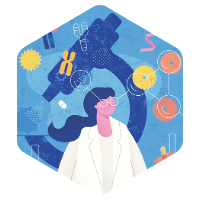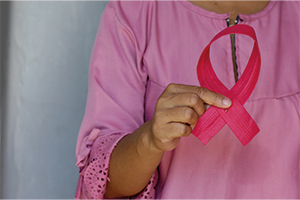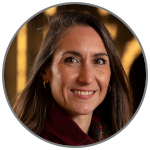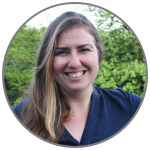Understanding the fundamental mechanisms of women's biology is essential to improving lifelong health, benefiting women and supporting intergenerational health outcomes. Women remain underrepresented in many clinical trials, and much laboratory research still relies predominantly on male model organisms and systems. This ongoing gap limits our understanding of sex-specific biology and its influence on disease.
The Cambridge Ecosystem
Cambridge researchers are addressing this imbalance by investigating how biological systems across genetics, cell biology, reproductive biology, endocrinology, immunology, neuroscience and psychology can intersect to shape health and disease in women. With exceptional depth in biological sciences and working closely with partners, stakeholders and lived experience experts, Cambridge is well-positioned to make a lasting and global impact on women's health.
Recent Highlights
#Research
Putting women's health in the spotlight
Cambridge researchers are working to undo a longstanding male bias in health research, to help drive more effective healthcare for all.
#Research
‘Exhausted’ immune cells in healthy women could be target for breast cancer prevention
Researchers at the University of Cambridge have created the world’s largest catalogue of human breast cells, which has revealed early cell changes in healthy carriers of BRCA1 and BRCA2 gene mutations.
#Research
‘Mini-placentas’ help scientists understand the causes of pre-eclampsia and pregnancy disorders
Scientists have grown ‘mini-placentas’ in the lab and used them to shed light on how the placenta develops and interacts with the inner lining of the womb – findings that could help scientists better understand and, in future, potentially treat pre-eclampsia.
Cambridge team attend All-Party Parliamentary Group meeting on Reproductive Equity and the Fibroids Crisis
On May 14th 2025, a delegation from the Department of Obstetrics and Gynaecology, led by Loke CTR Next Generation Fellow Dr Priscilla Day-Walsh, participated in a parliamentary session on Reproductive Equity and the Fibroids Crisis.
Priscilla was invited to present the outcomes of the event “Breaking the silence about uterine fibroids” organised last year by the Obstetrics and Gynaecology team in collaboration with Homerton College and funded in part by Cambridge Reproduction.
The APPG on Black Health are calling for evidence via a 10 minute survey:
Reproductive Equity & Fibroids Crisis
Academic Leads
Contributing Researchers
Catherine Aiken, Obstetrics and Gynaecology
Irving Aye, Obstetrics and Gynaecology
David Bulmer, Pharmacology
Steve Charnock-Jones, Obstetrics and Gynaecology
Emma Davenport, Wellcome Sanger Institute
Felix Day, MRC Epidemiology Unit
Priscilla Day-Walsh, Physiology, Development and Neuroscience and Loke Centre for Trophoblast Research
John Doorbar, Pathology
Francesca Gaccioli, Obstetrics and Gynaecology
Dino Giussani, Physiology, Development and Neuroscience
Courtney Hanna, Physiology, Development and Neuroscience
Richard Hayward, Pathology
Allan Herbison, Physiology, Development and Neuroscience
Melissa Hines, Psychology
Nerea Irigoyen, Pathology
Walid Khaled, Pharmacology and Cambridge Stem Cell Institute
Madeline Lancaster, MRC Laboratory of Molecular Biology
Adria Le Boeuf, Zoology
Naomi McGovern, Pathology
Amy Milton, Psychology
Ashley Moffett, Pathology
Kathy Niakan, Physiology, Development and Neuroscience
Emma Pomeroy, Archaeology
Emma Poole, Pathology
Eleanor Raffan, Physiology, Development and Neuroscience
Alberto Rosello-Diez, Physiology, Development and Neuroscience
Christina Rozeik, Cambridge Reproduction
Ritwick Sawarkar, MRC Toxicology Unit
Claire Senner, Physiology, Development and Neuroscience
Amanda Sferruzzi-Perri, Physiology, Development and Neuroscience
Andrew Sharkey, Pathology
Ben Steventon, Genetics
Alex Tsompanidis, Psychiatry
Alecia-Jane Twigger, Biochemistry
Roser Vento-Tormo, Wellcome Sanger Institute
Work with us
We welcome opportunities to collaborate with industry partners, policy makers and academics. If you are interested in working with us, please contact Dr Abi Herrmann, Research Strategy Manager.








